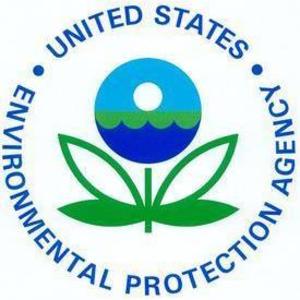EPA solicits nominations for SAB, related committees




June 7, 2019
BY Erin Krueger
The U.S. EPA is inviting nominations of scientific experts to be considered for appointment to the agency’s Science Advisory Board and four SAB committees, including the SAB Agricultural Science Committee, which provides advice to the chartered SAB on matters that impact farming and agricultural related industries.
The SAB is a charted Federal Advisory Committee established in 1978 to provide independent scientific and technical peer review, consultation, advice and recommendations to the EPA administrator on the scientific bases for the agency’s actions and programs.
Members of the SAB constitute distinguished bodies of non-EPA scientists, engineers, economics, and behavioral scientists who are nationally and international recognized experts in their respective fields. Members are appointed for a three-year term and serve as special government employees who provide independent expert advice to the agency.
Advertisement
The SAB staff office is inviting the nomination of experts in analytical chemistry; benefit-cost analysis; causal inference; complex systems; ecological sciences and ecological assessment; economics; engineering; forestry geochemistry; health sciences; hydrology; hydrogeology; medicine; microbiology; modeling; pediatrics; public health; risk assessment; social, behavioral and decision sciences; statistics; toxicology; epidemiology; and uncertainty analysis.
The SAB staff office said it is especially interested in scientists in the above disciplines who have knowledge and experience in air quality; agricultural sciences; atmospheric sciences; benefit-cost analysis; complex systems; drinking water; energy and the environment; epidemiological risk analyses; dose-response, exposure, and physiologically based pharmacokinetic (PBPK) modeling; water quality; water quantity and reuse; ecosystem services; community environmental health; sustainability; chemical safety; green chemistry; and waste management.
Advertisement
The SAB staff office is also seeking nominations of experts for possible vacancies on four SAB standing committees, including the Agricultural Science Committee, the Chemical Assessment Advisory Committee, the Drinking Water Committee and the Radiation Advisory Committee.
For the Agricultural Science Committee, the SAB staff office is inviting the nomination of scientists with expertise in agricultural science, including agricultural economics and valuation of ecosystem goods and services; agricultural chemistry; agricultural engineering; agronomy and soil science; animal science; aquaculture science; biofuel engineering; biotechnology; crop science and phytopathology; environmental chemistry; forestry; and hydrology.
Nominations are due June 24. Additional information is available on the Federal Register website.
Related Stories
The U.S. Department of Energy Bioenergy Technologies Office (BETO) announced up to $23 million in funding to support research and development (R&D) of domestic chemicals and fuels from biomass and waste resources.
The U.S. DOE has announced its intent to issue funding to support high-impact research and development (R&D) projects in two priority areas: sustainable propane and renewable chemicals and algal system cultivation and preprocessing.
Sens. Sherrod Brown, D-Ohio, and Pete Ricketts, R-Neb., in August introduced the Renewable Chemicals Act, a bill that aims to create a tax credit to support the production of biobased chemicals.
The Chemical Catalysis for Bioenergy Consortium, a consortium of the U.S. DOE’s Bioenergy Technologies Office, has launched an effort that aims to gather community input on the development of new biomass processing facilities.
USDA on March 8 celebrated the second annual National Biobased Products Day, a celebration to raise public awareness of biobased products, their benefits and their contributions to the U.S. economy and rural communities.
Upcoming Events










